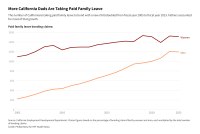Latest KFF Health News Stories
New California Law Offers Fresh Protection From Steep Ambulance Bills
The law, which takes effect Jan. 1, prohibits out-of-network ground ambulance operators from billing patients more than they would pay for in-network rides. It also caps how much the uninsured must pay.
La resistencia a empezar más tarde tiene menos que ver con dificultades logísticas y financieras, sobre todo en aspectos básicos como el transporte escolar.
Science Says Teens Need More Sleep. So Why Is It So Hard to Start School Later?
Sleep deprivation in adolescents is linked to mental health struggles, worse grades, traffic accidents, and more. That’s why states such as California and Florida have mandated later high school start times. But opposition to later times is less about the science than it is about logistics and costs.
States Reconsider Religious Exemptions for Vaccinations in Child Care
Providers and health care advocates warn a proposed rule change in Montana would jeopardize immunity levels in child care centers and communities. Efforts to change vaccination exemption rules are underway in other states, too.
Dads Drive Growth in California’s Paid Family Leave Program
The number of men in the state taking paid family leave to bond with a new child has risen nearly 20% since the start of the pandemic.
California Expands Paid Sick Days and Boosts Health Worker Wages
Gov. Gavin Newsom signed legislation expanding paid sick leave to five days, extending bereavement leave to miscarriages and failed adoptions, and approving an eventual $25-an-hour health care minimum wage. Still, in a possible sign of national ambitions, the Democrat vetoed free condoms in schools and refused to decriminalize psychedelic mushrooms.
California Moves Ahead of the FDA in Banning Common Candy Additives
The legislation bans the use of four additives that are already prohibited in many other countries but remain in popular U.S. foods. Advocates say states need to act because the FDA has done little.
Michigan Voters Backed Abortion Rights. Now Democrats Want to Go Further.
Michigan is one of the few remaining abortion havens in the Midwest. But getting an abortion in that state is still more difficult than it should be, providers say.
California prohíbe el controversial diagnóstico de “delirio excitado”
El gobernador demócrata Gavin Newsom firmó un proyecto de ley el 8 de octubre para prohibir que los forenses, doctores, y examinadores médicos incluyeran el síndrome de “delirio excitado” en certificados de defunción o informes de autopsias.
California Bans Controversial ‘Excited Delirium’ Diagnosis
California is the first state to ban the controversial diagnosis known as “excited delirium,” which has been used increasingly to justify excessive force by law enforcement. A human rights advocate described the law, signed this week by Gov. Gavin Newsom, as a “watershed moment” in criminal justice.
What the Health? From KFF Health News: More Medicaid Messiness
At least 30 states are reinstating coverage for children wrongly removed from the rolls under Medicaid redetermination, the federal government reported. It’s just the latest hiccup in the massive effort to review the eligibility of Medicaid beneficiaries now that the program’s pandemic-era expansion has expired. And federal oversight of the so-called unwinding would be further complicated by an impending government shutdown. Rachel Roubein of The Washington Post, Sandhya Raman of CQ Roll Call, and Sarah Karlin-Smith of Pink Sheet join KFF Health News chief Washington correspondent Julie Rovner to discuss these issues and more. Also this week, Rovner interviews KFF Health News’ Samantha Liss, who reported and wrote the latest KFF Health News-NPR “Bill of the Month” feature, about a hospital bill that followed a deceased patient’s family for more than a year.
Biden Administration to Ban Medical Debt From Americans’ Credit Scores
The White House said the Consumer Financial Protection Bureau will develop new regulations that would prevent unpaid medical bills from being counted on credit reports.
La medida, aprobada por legisladores estatales el jueves 14 de septiembre, introduciría gradualmente el aumento salarial en hospitales, residencias de adultos mayores y otros proveedores de servicios médicos y psiquiátricos.
California Lawmakers Approve Nation-Leading $25 Minimum Wage for Health Workers
A sweeping agreement approved by state lawmakers would gradually raise the minimum wage for hundreds of thousands of health workers to a nation-leading $25 an hour. The pact would also end labor’s years-long battle with dialysis clinics.
Montana State Officials Seek More Control Over Judicial Involuntary Commitments
Health department officials are asking legislators to change criminal commitment laws amid a bottleneck at the Montana State Hospital.
Hollywood’s A-List Health Insurance Is Jeopardized by the Labor Strikes
Hollywood actors and writers who qualify for their union health plans get a very good deal compared with other Americans. But not working during the strike threatens their eligibility in the system.
No existen normas federales para proteger a los trabajadores cuando los días son excesivamente calurosos. Y sin el apoyo bipartidista del Congreso, incluso con la atención urgente de la administración Biden, es posible que el alivio no llegue en años.
Workers Pay the Price While Congress and Employers Debate Need for Heat Regulations
Studies suggest official numbers vastly underestimate heat-related injuries and illness on the job. To institute protections, the government must calculate their cost — and the cost of inaction.
Republican Debate Highlights Candidates’ Views on Abortion
Though health policies in general got little airtime, the discussion of whether candidates support a federal abortion ban underscored how Republicans, in a post-Roe environment, face political challenges on the issue.
Sin barreras, los precios de algunos medicamentos existentes se han disparado, incluso cuando han caído drásticamente en otros países. Los nuevos medicamentos tienen precios enormes, respaldados por el lobby y el marketing.






















